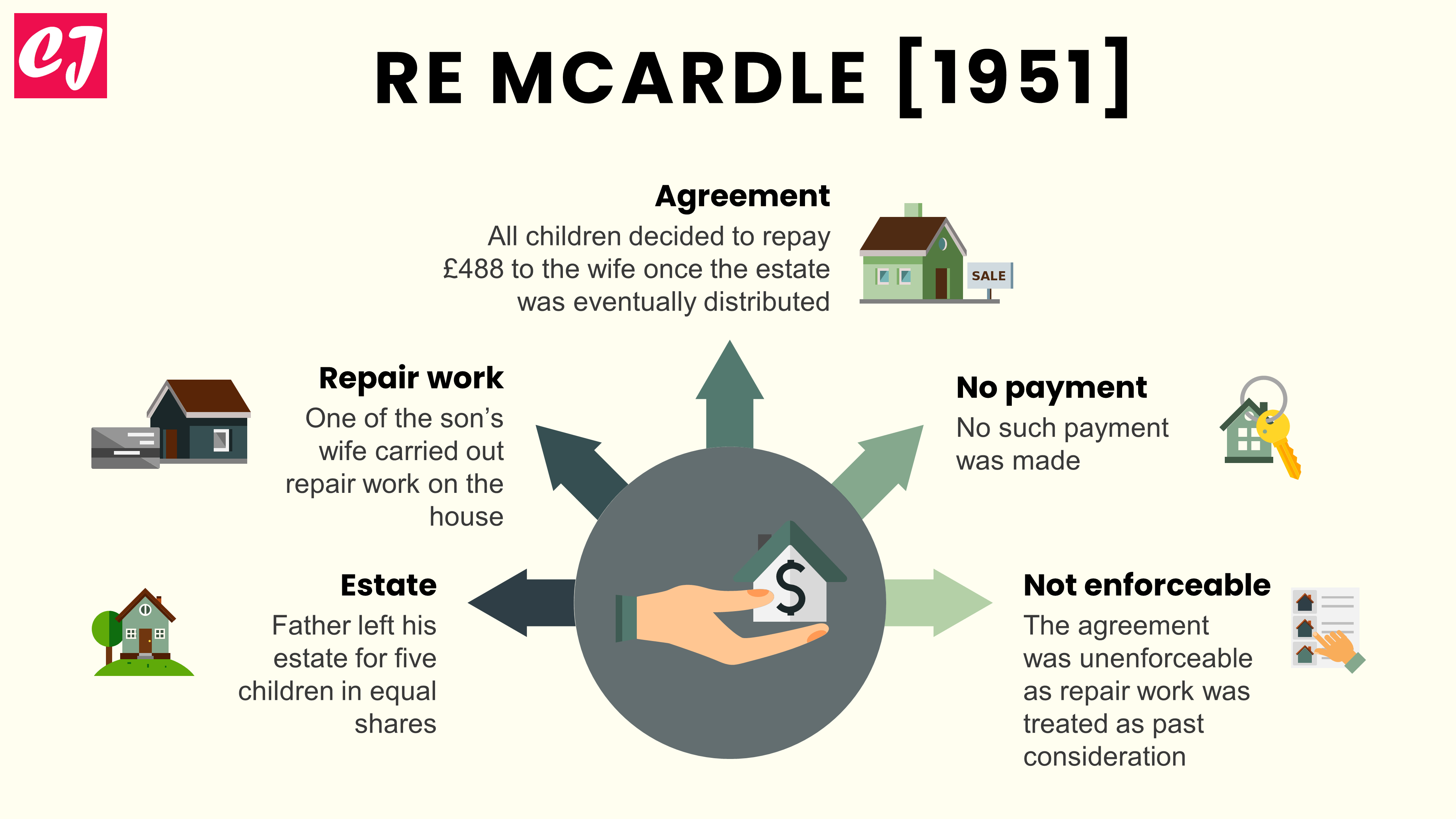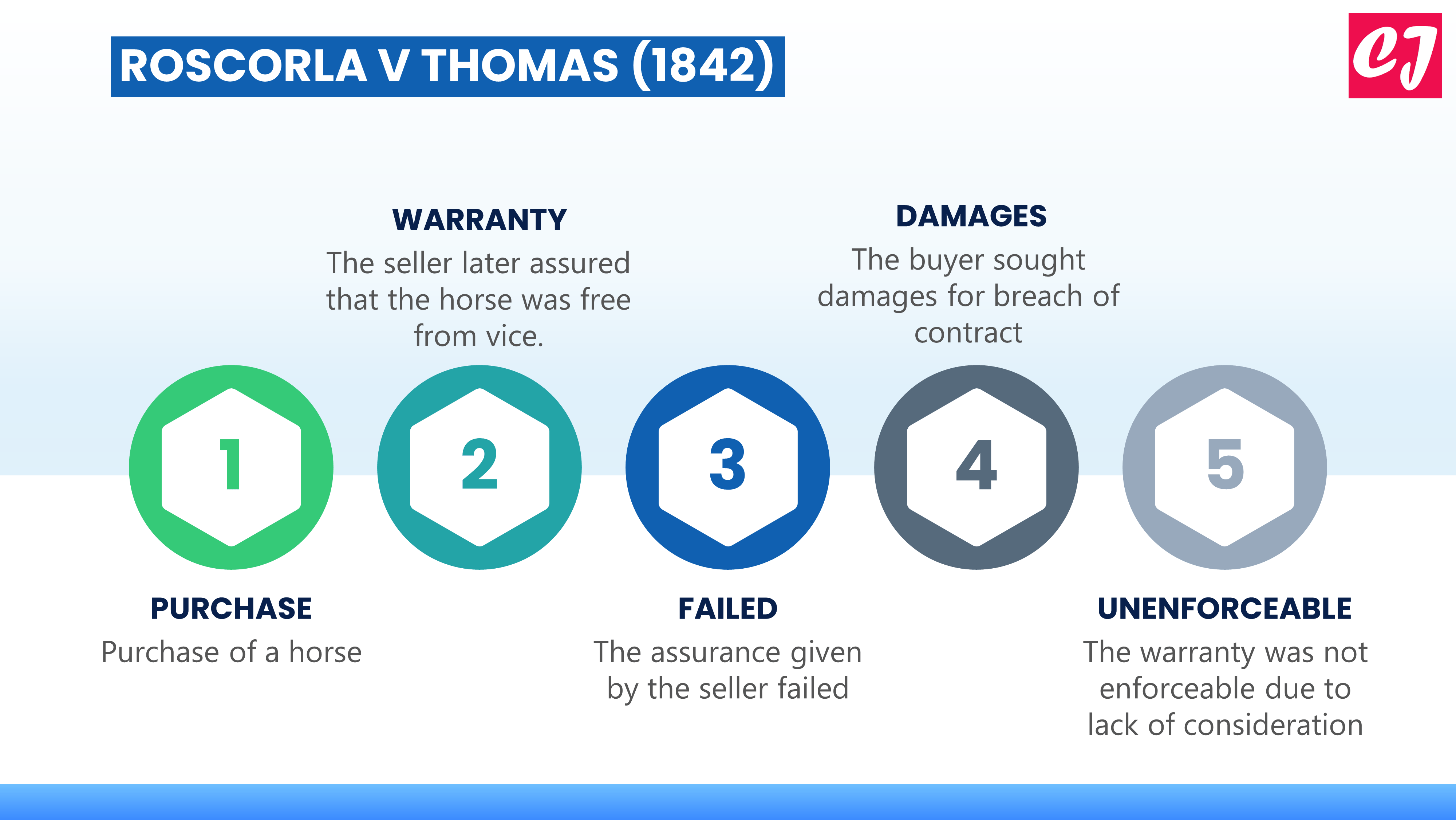Case name & citation: Re McArdle [1951] Ch 669; [1951] 1 All ER 905 Court and jurisdiction: Court of Appeal; England and Wales Area of…
Case name & citation: Roscorla v Thomas (1842) 3 QB 234; [1842] EWHC QB J74; (1842) 114 ER 496 A Quick Summary Roscorla v Thomas…

